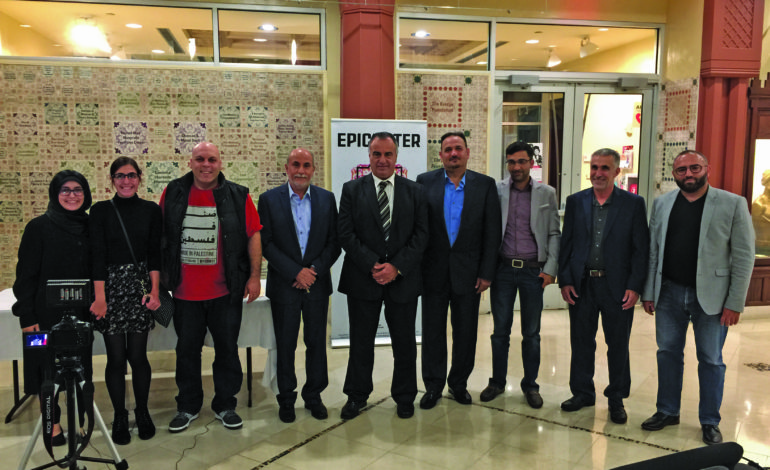DEARBORN — On September 6, the Arab American National Museum sponsored and hosted an Arabic poetry open mic event. Seven speakers recited poetry or short stories.
All the poems and stories were original works, except for a famous poem from history, read by the first speaker, Aseel Srour, a local college student. She recited “Sajil ana Araby” or “Identity Card”, written by Mahmoud Darwish.
Darwish is a Palestinian who was “born in al-Birwa in Galilee, a village that was occupied and later razed by the Israeli army,” according to poetryfoundation.org. Born in 1942, Darwish was placed under house arrest after “Identity Card” was turned into a protest song.
“Considered Palestine’s most eminent poet”, according to poets.org, “Darwish published his first collection of poems, Leaves of Olives, in 1964, when he was 22.”
Darwish has accumulated a number of awards and honors, including the Ibn Sina Prize, the Lenin Peace Prize, the 1969 Lotus prize from the Union of Afro-Asian Writers, France’s Knight of Arts and Belles Lettres medal in 1997, the 2001 Prize for Cultural Freedom from the Lannan Foundation, the USSR’s Stalin Peace Prize and more, according to poets.org.
Srour said she was born in Detroit and raised in Dearborn and began to learn Arabic at the age of 5. She’d recited poems at her Arabic schools before, “but obviously, this is cooler,” she told The AANews.
Wissam Charafeddine is the founder of Dearborn Open Mic and the Dearborn Blog, where videos of the recited poems are archived. Charafeddine said he created the monthly open mic night about five months ago.
Originally poets recited only in Arabic, but have transitioned into having some poems recited in English as well.
About a dozen people came to the museum to listen to the poems, but Charafeddine said he isn’t concerned about the turnout because of the recordings. All the performers use microphones while performing and are filmed, so anyone can watch them on the Dearborn Blog later through YouTube.
Charafeddine told The AANews that more events like this are needed in Dearborn because so much tourism in Dearborn is about food and there is a lack of cultural activities.
“People come here, they eat, then they leave,” he said.
The second speaker, Yasmine Badaoui, got her bachelor’s degree in psychology from Iowa State University and is a freelance writer. Before reciting her original poem, “Racism smiles on S. Brady”, she explained that she got her inspiration for her poem from the city’s reluctance to remove the Orville Hubbard statue on South Brady Street in West Dearborn as well as the events that unfolded in Charlottesville, Virginia.
Badaoui said she feels the statue has a lot of negative energy around it because of Hubbard’s segregationist views.
A third speaker, Haider Mazen, read a short story about Nick Vujicic, an Australian man born without any arms or legs.
Charafeddine was the fourth speaker. He read a poem in Arabic, then recited another in English. The latter was entitled, “Inside.” Charafeddine wrote it after being inspired by an act of meditation on a beach in Florida. He told crowd that when you meditate with your eyes shut you can look inward at yourself and it doesn’t matter where you are physically.
The fifth speaker, Ali El Sendy, also recited a few poems.
The sixth speaker, Dr. Ali Ajami, is a doctor of philosophy, Arabic language and literature as well as admissions ambassador for the Ministry of Foreign Affairs in Lebanon, according to his LinkedIn account. Ajami’s readings elicited tears from some members of the audience.
Amer Zahr read three passages from his book, “Being Palestinian, makes me Smile”, eliciting simultaneous laughter and seriousness from the audience.
Dearborn Open Mic takes place on the first Wednesday of each month from 7-9 p.m., according DearbronBlog.com. Charafeddine said the museum is accommodating, and if the crowd continues to grow, will make the auditorium available for the event.
The videos of the performance from September 6 and previous events are available for viewing on DearbornBlog’s YouTube page.






Leave a Reply